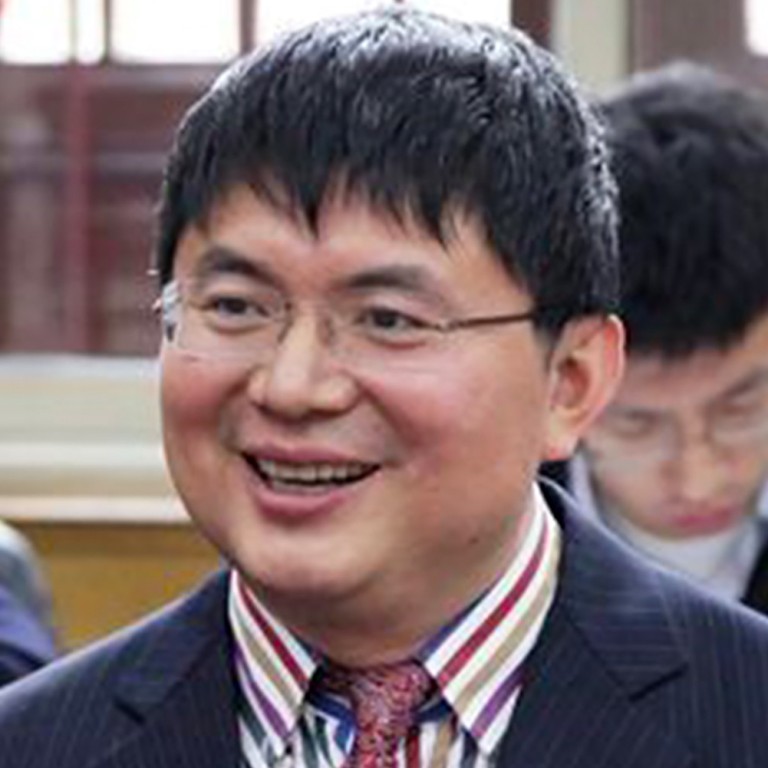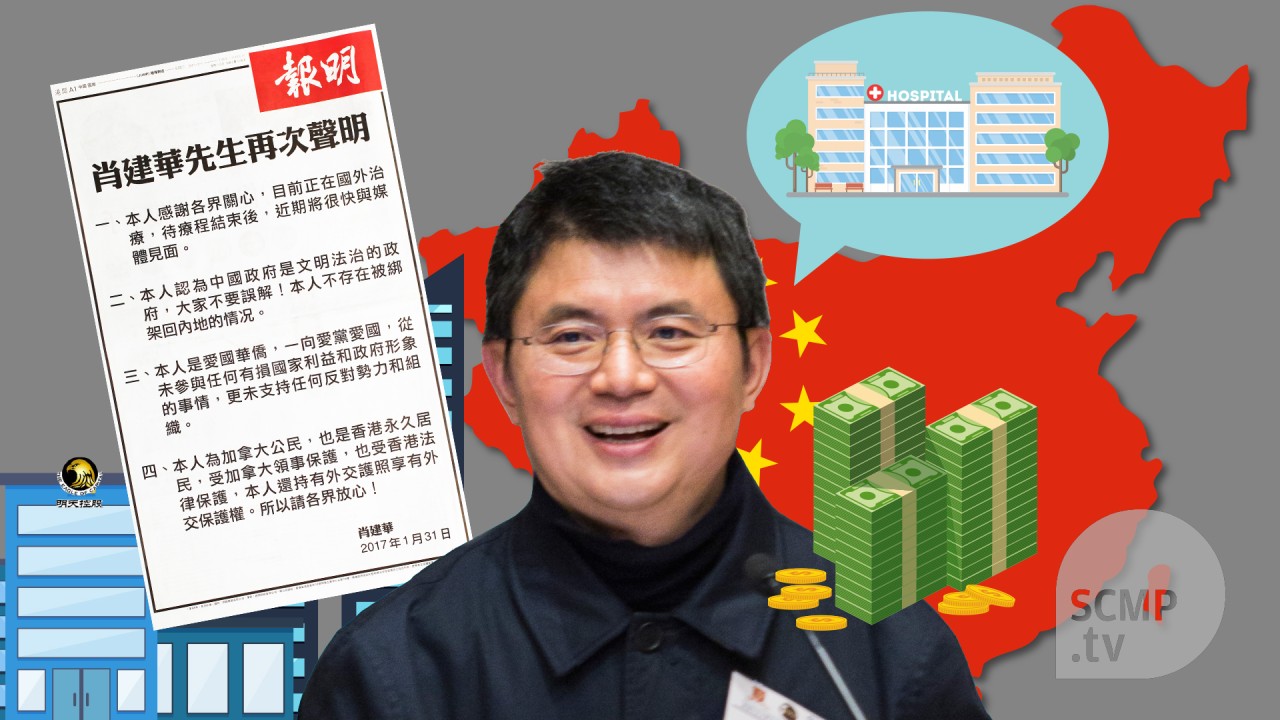
Chinese-Canadian tycoon Xiao Jianhua, who disappeared from Hong Kong hotel, to stand trial in mainland China
- Xiao to face court on Monday, according to the Canadian embassy in Beijing
- Billionaire vanished from the Four Seasons Hotel Hong Kong in 2017
A Canadian-Chinese tycoon who disappeared from a luxury hotel in Hong Kong in suspicious circumstances in 2017 was expected to stand trial in mainland China on Monday, according to the Canadian embassy in Beijing.
“Canadian consular officials are monitoring this case closely, providing consular services to his family and continue to press for consular access.”
The embassy said no other information could be provided.
The Wall Street Journal reported earlier that Xiao was charged with illegally collecting public deposits, an offence that can lead to over 10 years in prison if large amounts of money are involved.
The central government has been tight-lipped about the trial and the charges against Xiao.
China trims oligarch’s empire by seizing his insurers, trusts, brokers
Xiao, 50, was born in Shandong, has Canadian citizenship and reportedly held a diplomatic passport from Antigua and Barbuda.
Although a low-profile figure, he was well known for his connections with China’s political elite and his businesses ranged from insurance to mining.
In 2007, Caijing magazine reported that Xiao teamed up with Zeng Wei, the son of the powerful former vice-president Zeng Qinghong, in the controversial takeover of state-owned conglomerate Shandong Luneng.
Shandong Luneng was sold for 3.73 billion yuan, but the market value of its assets was estimated at 73.8 billion yuan. A spokesman for Xiao said in 2014 that the deal was legal.
A 2014 report by The New York Times said a review of corporate records showed Xiao had business links with Chinese President Xi Jinping’s sister and brother-in-law, as well as the son-in-law of powerful former state leader Jia Qinglin.
In a response to the Times article, Xiao confirmed that a company he co-founded had stepped in to buy shares held by Xi’s sister and her husband the previous year.
In 2020, financial regulators seized control of several insurers, trust firms and stock brokerages linked to Xiao, as part of the coordinated effort to dismantle his business empire.
Huaxia Life Insurance, Tianan Property Insurance, Tianan Life, Yian Property Insurance, New Times Trust and New China Trust were placed under state administration to “protect the rights of policy holders, customers and serve the public’s interest”, according to the China Banking and Insurance Regulatory Commission at the time.
Separately, New Times Securities, Guosheng Securities and Guosheng Futures were placed under the government management for a year from 2020.
Mysterious tycoon's empire proves tough for Beijing to split up
Xiao vanished in 2017 from the Four Seasons Hotel Hong Kong, where he had lived for several years.
Chinese government sources reportedly said he complied when he was taken away by mainland personnel.
Hong Kong police said weeks after the incident that Xiao passed through Hong Kong customs to the mainland with travel documents, though it remains unknown if he was coerced to do so.
It is also unclear when a decision will be handed down but the trial could mean the end to one of the biggest criminal cases involving a mainland tycoon.
Wu, who was married to Deng Xiaoping’s granddaughter, mounted an unsuccessful appeal.


